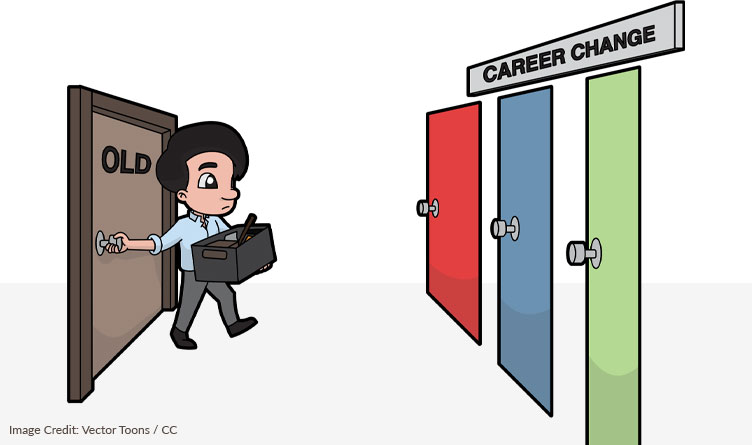Image Credit: Vector Toons / CC
The Center Square [By Brett Rowland] –
People switching jobs during the Great Resignation contributed to rising inflation in 2021, according to a report from the Federal Reserve Bank of Chicago.
“The idea is as follows: By applying for jobs in a different firm, employed workers can elicit wage competition between the current employer and the new candidate employer. The firm that intends to poach the worker from their current employer has to offer a sufficiently large wage to make the offer attractive. And if a worker is particularly valued by their own employer, they may be offered a pay raise that is necessary to retain them in their current job,” authors Renato Faccini, Leonardo Melosi and Russell Miles wrote in Chicago Fed Letter No. 465. “In this context, if employed workers search more, wage competition among employers increases, leading to an increase in inflationary pressures; if they search less, wage competition falls and inflationary pressures decrease.”
The authors wrote that “the recent brisk surge in the propensity to search on the job has contributed to raising inflation by around 1 percentage point during most of 2021.”
“According to our estimates, the Great Resignation increased the rate of inflation by up to 1.1 percentage points,” the authors wrote. “Interestingly, the contribution to inflation built up from the onset of the pandemic crisis. This inflationary pressure plateaued at its peak of May 2021 and then declined slightly in September 2021. Of course, there is a lot of uncertainty about the magnitude of these inflationary effects, which are estimated using a theoretical model based on a number of simplifying assumptions about the functioning of the economy.”
The authors also noted that “more research on the reasons behind the desire to change jobs among U.S. workers will be needed to determine how persistent these inflationary pressures are likely to be.”
*** Click Here to Support Conservative Journalism in Tennessee. We can’t bring your articles like this without your support!***
The Bureau of Labor Statistics released its Consumer Price Index (CPI) data, a key marker of inflation, earlier this month. That data showed prices increased 0.6% in the month of January and 7.5% since last year, contributing to one of the biggest inflation spikes in decades.
“The all items index rose 7.5 percent for the 12 months ending January, the largest 12-month increase since the period ending February 1982,” the bureau reported. “The all items less food and energy index rose 6.0 percent, the largest 12-month change since the period ending August 1982. The energy index rose 27.0 percent over the last year, and the food index increased 7.0 percent.”
The Biden administration has been criticized for the rising prices, especially after pushing through several trillion dollars in new federal spending last year. Federal debt spending continues to contribute to driving inflation higher as more money is printed to offset federal debts.

About the Author: Brett Rowland, The Center Square Regional Editor. Brett Rowland has worked as a reporter in newsrooms in Illinois and Wisconsin. He most recently served as news editor of the Northwest Herald in Crystal Lake, Illinois. He previously held the same position at the Daily Chronicle in DeKalb. Contact Rowland at browland@watchdog.org




